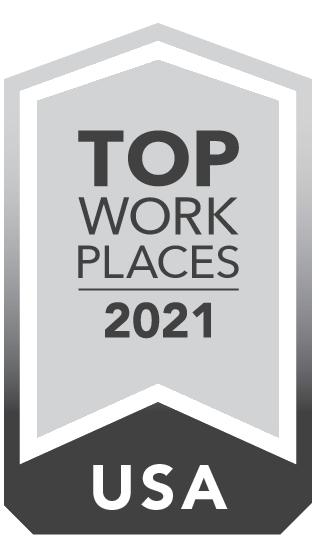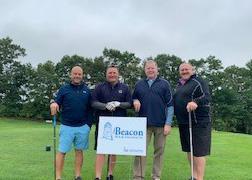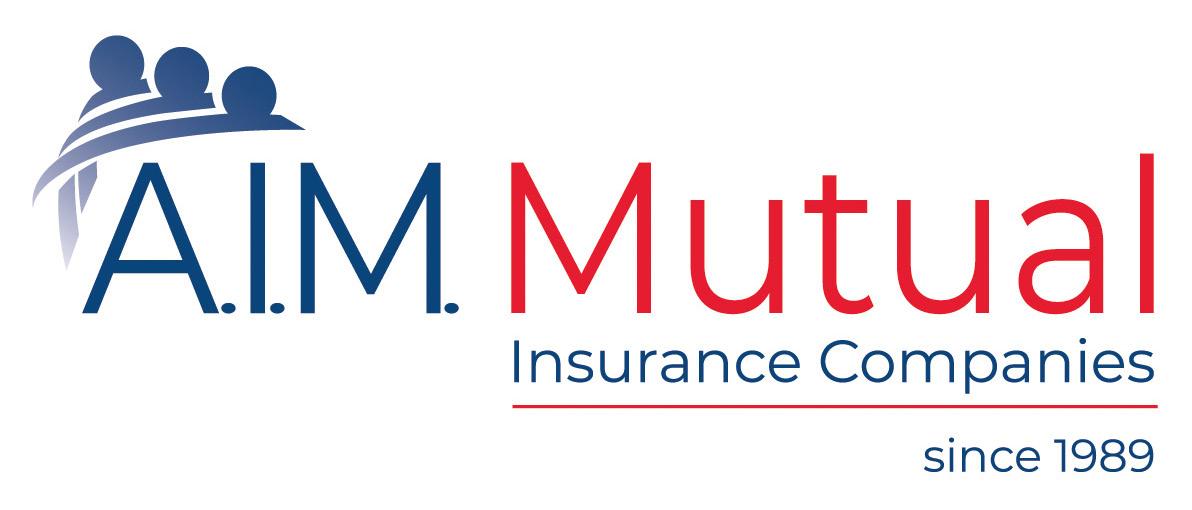The Anchor
THE INDEPENDENT INSURANCE AGENTS OF RHODE ISLAND MAGAZINE



Retain and gain more clients with tailored insurance packages from EMC. Coverage needs for wholesalers and distributors can vary in size and scale as much as the operation itself. Offering comprehensive bundled packages with customized offerings to your clients can really help seal the deal and deliver a significant boost to your bottom line. emcins.com/wholesalers







President Kenneth Thompson, Jr.
President Elect Michele Calabrese
Vice President Anthony Bucci, Jr. CPCU, AIS
State National Director William J. Hunt, CPCU
Immediate Past President Denise T. Smith, CIC
Terms Expire 2021 Sean P. Daly, CPCU Daniel Lathrop
Terms Expire 2022 Margaret Longolucco, CIC Joseph Paiva
Terms Expire 2020 Thomas. J. DiSanto, JD, LLM, CIC Christopher Slocum, CIC, CPIA
Marcia L. Berthiaume, AAI, ACSR, AIS, CPIA
State Account Manager, Emerging Leaders Liaison
Helen Collins, AAI, AIS, CPIA
Director of Professional Liability
Sean R. Donaghey, CPCU
Senior Vice President, State Account Executive
Toni Drowne
Communications & Marketing Manager
Jack Hutson, CAE
Senior Vice President, Business Development
Lori Kaufman
Executive Assistant/Member Services Coordinator
Maureen McNamara, AIS, ACSR
Assistant Treasurer, Director of Finance
Mark A. Male, MLIS
Executive Vice President, Secretary/Treasurer
Jean E. Nagle, AAI, ACSR, AIS
Assistant Vice President, Director of Education
Sarah Ribera
Assistant Director of Education & Membership
The Anchor is published by the Independent Insurance Agents of Rhode Island (IIARI). Statement of fact and opinion is made based on the responsibility of the authors alone and does not imply an opinion on the part of IIARI, it’s officers, directors or members.
Subscription rate for members is $15, which is included in dues. Subscription rates for non-members is $75 per year. (single copies $10). Reprint requests should be referred to IIARI.
Copyright © 2021

Independent Insurance Agents of Rhode Island.
Independent Insurance Agents of Rhode Island

As 2021 rapidly approaches year end, I felt Covid would never end and in many ways, it’s still here. Getting back to more normal routines I constantly hear from members that the hardest part of their job is finding talented people to join our industry. When we do find someone that sees the great opportunity insurance can provide how do we train them. Do we partner them up with our best employee so they can see how to quote and service our accounts? Will that reduce productivity in the office because our best employee is now taking time to train?
No matter what size agency you speak with, they feel the same pain.
I am glad to say that Mark Male and I have had multiple conversations with CCRI about this very topic. John Houle of JH Communication reached out to Mark Male and I about a successful mortgage processing program that CCRI ran. They had great success finding individuals to sign up for the class and then creating a program that gave them the exact tools to find a career in the mortgage industry.

Mark, John and I had a Zoom to start the conversation and see what type undertaking this would mean. The key take away from this call was that CCRI have proven track record for creating and implementing courses that people can learn from so they can immediately apply them to a career. What is even better is that they were approved to receive funding for this course.
As a board we try to make every decision in the best interest for our members. I believe that this could be a great help to all of us. As we go further in the process we will keep you up to date.


Selective makes writing flood insurance easy through quality customer service and superior technology. Together, Big “I” Flood and Selective’s relationship helps deliver members an unparalleled flood program by offering:
An enhanced quoting and policy issuance system
Direct access to dedicated and skilled underwriters, assigned to each agency rather than a TPA call center
Competitive commission structure
Localized and experienced flood territory managers with intimate knowledge of flood insurance
Access to free customizable marketing materials and campaigns
Notifications of important NFIP program changes
On site book roll-over assistance
Carrier appointed claim adjusters and in-house claim examiners
following a flooding event
The knowledge that participation supports Big “I” advocacy efforts on Capitol Hill
Learn more and sign up today at www.independentagent .com/Flood.


What a year this has been, but we survived and overall, it was a good year for the companies and for all agents who worked.
As expected, Workers’ Compensation written premiums decreased by about 19 million.
Private Passenger Auto Liability and Physical Damage was flat from 2019 and that wasn’t surprising as the insurance companies returned so much premium.
Homeowners insurance premiums increased about 20 million and had a good loss ratio – oops - for most companies. And, the best news, we the Independent Agents continued to increase our market share.
In Private Passenger Auto, you will note that the market share for State Farm increased as did the loss ratio and that’s because the statistics for HiRoad are included in State Farm and their loss ratio is very high.
It’s obvious from the statistics that the Independent Agent continues to increase market shares.
2020 2019 2018
Private Pass. Auto Liability 633,236,000 637,542,000 638,045,000
Private Pass. Phys. Damage 348,216,000 343,175,000 327,612,000
Homeowners 461,863,000 440,193,000 419,521,000 W.C. 210,418,000 229,321,000 219,800,000
Products Liability 12,254,000 11,972,000 11,311,000
Comm’l Multi-Peril (Non-Liab.) 115,106,000 68,967,000 101,503,000
Comm’l Multi-Peril (Liability) 67,309,000 106,742,000 65,844,000
Other Liability 177,827,000 140,661,000 133,815,000
Comm’l Auto Liability 102,976,000 102,026,000 93,215,000
Comm’l Auto Phys. Damage 30,679,000 29,259,000 25,943,000
Inland Marine 84,124,000 96,217,000 87,277,000
Medical Malpractice - Other Than MMJUA 29,571,000 30,136,000 26,136,000
Fire 47,733,000 41,354,000 40,717,000
Allied Lines 61,240,000 47,684,000 44,483,000
5.6 6.2 6.4 140,942,000 49.7 48.0
4.1 4.2 105,372,000 56.2 50.0
4.1 4.3 4.6 102,112,000 59.5 59.4
3.9 3.8 3.7 97,482,000 39.2 83.0
48.3
49.7
60.7
40.7
79.1
78.0
61.0
1 Beacon 50.0 52.5 55.9 105,238,000 52.3 42.7 2 Hartford 8.9 9.0 8.2 18,809,000 37.3 43.1 3 Travelers 5.2 5.6 5.3 10,841,000 46.7 34.4 4 Chubb 3.6 3.3 3.1 7,525,000 34.0 32.6 5 Zurich 3.1 3.2 3.0 6,556,000 75.7 80.1 6 Berkshire Hathaway 3.0 2.9 3.2 6,395,000 33.8 30.8 7 C Liberty Mutual 2.9 2.7 2.7 6,039,000 87.5 61.2 8 MEMIC 2.6 2.3 2.0 5,516,000 30.3 60.7 9 Old Republic 2.3 1.8 - 4,859,000 30.3 60.7 10 AmTrust Group 1.9 1.5 1.8 4,062,000 81.0 66.2 11 American Int’l Group 1.8 1.5 1.5 3,736,000 -21.1 19.4 12 Hanover 1.5 1.4 1.0 3,060,000 46.1 38.1 EMC 1.1 .8 - 2,304,000 46.1 38.1 QBE 1.1 .8 .6 2,227,000 31.6 48.0 13 Arch Ins. .9 1.0 .7 1,981,000 77.9 253.1 Fairfax .8 .9 .9 1,704,000 88.5 42.0 14 W. R. Berkley .7 1.0 1.0 1,482,000 91.7 126.8 17 CNA .6 .8 .7 1,333,000 70.6 -99.9 19 Markel Corp. .5 .6 .8 1,145,000 61.5 49.7 20 Everest Re US Group .5 - - 1,063,000 45.2 22.7
3.4 3.4 3.3 3,529,000 62.9 48.3
5.3 4.6 3,734,000 27.1 201.3
4.2 3.7 3,498,000 29.2 17.2
3.9 3.0 - 2,636,000 17.7 31.0
3.2 2.8 2.5 2,171,000 16.1 23.6
2.7 2.6 2.5 1,843,000 12.9 57.6
5.5 6.0 5,455,000 75.5 22.0


Fall 2021 is upon us and for the first time in over a year things seem to be getting back to normal, it is great to see everyone’s smile again when out and about, and packed parks, and restaurants are a testament to how ready everyone was to break out.
It has been great to see crowds of people together, but the question still remains, What is the new normal and what does it mean for our industry moving forward? We have all adapted our lives and work schedules to coordinate with the pandemic. This included virtual work, Zoom meetings, safety, and hygiene protocols including masks. As a producer the thing I loved most about my job was getting out and meeting clients and prospects in person and greeting them with a handshake and smile. As independent agents we are valued members of our community and need to be out and about learning about the wants and needs of our client’s. So moving forward I think there will be a combination of virtual and in person meetings until we figure out what the new normal means for each agency.
As far as my title of Chairperson of the Emerging Leaders it has certainly been a trying year. Without the ability to have in person events or educational sessions we did our best to stay top of mind. Any momentum we had at the start of 2020 was brought to a halt with the pandemic. Good news is as a committee we had our first actual meeting in over a year recently, it was hosted by one of our association partners and was great to see everyone again. We have some big things planned for the Emerging Leaders in 2021 so please be on the lookout for our events and educational offerings. Looking forward to seeing everyone’s smile again, in the meantime stay safe and be positive!
Timothy Mailloux Emerging Leaders Chair







 Scottish American Foursome
Selective Foursome
RPS Foursome Beacon Mutual Foursome
Scottish American Foursome
Selective Foursome
RPS Foursome Beacon Mutual Foursome






 MPUIA Foursome
Shove Insurance Foursome
Putting Contest Sponsor Enviro Clean Restore Foursome
MPUIA Foursome
Shove Insurance Foursome
Putting Contest Sponsor Enviro Clean Restore Foursome
If we did not have enough to worry about already, with the coronavirus pandemic still upon us, June 1st is the start of the Atlantic hurricane season. 1 For the past seven years, there have been named hurricanes that have developed prior to the official June 1st start of hurricane season. Although 2020 was a recordbreaking year for hurricanes, many of the weather and hurricane experts are predicting that this year’s Atlantic hurricane season may once again be a very active one. Already this year, in May, hurricane Ana developed in the Atlantic and, thankfully, headed out to sea without making landfall. Over the years we have seen insurance agencies and brokerages react to these types of storms and change certain aspects of how they conduct their business in order to help protect their customers and also help prevent a potential E&O claim or lawsuit. In this issue of The E&O Corner, we will discuss a few things that every insurance agency or brokerage should be doing in preparation for another potential catastrophic event. No matter whether your agency or brokerage is located on the coast or inland, it is important that you think about the issues discussed below.
It has been estimated that less than a quarter of the properties that were damaged several years ago in Texas and Florida from flooding as a result of hurricanes Harvey and Irma were covered by flood insurance. After Irene and Sandy many of the storm related E&O claims and lawsuits that we saw were been brought by customers who had suffered a flood loss but did not have flood insurance in effect at the time of the storm. Although Vermont is not on, or even near the sea coast, it suffered severe flooding as a result of
1 The Atlantic hurricane season runs from June 1st through November 30th each year. The peak of the season is usually from mid-August to late October. However, deadly hurricanes can occur anytime during hurricane season.
Hurricane Irene after the storm headed inland. 2
Some Vermont towns were completely washed away and numerous lives were lost as a result of record the flooding.
Due to these types of events, many insurance agencies and brokerages have adopted a procedure where they offer every customer the option of purchasing flood insurance regardless of where the Insured’s property is located. Since most customers will usually opt not to purchase flood coverage unless they are located directly on a body of water, it is a good practice for the agency or brokerage to document the customer’s rejection of that coverage. One of the best ways to document the acceptance or, more likely, the rejection of coverage is to use the ACORD 60 Flood Acceptance/Rejection form. The ACORD 60 form should be completed by the customer indicating that the coverage is either accepted or rejected. Then it should also be signed and dated by the customer. The executed form should be retained in the customer file.
An added benefit of using the ACORD 60 Flood form is that it specifically states that once it is signed it will apply to all future policy renewals. By adopting an agency-wide practice where the option of purchasing flood coverage is offered to each customer, and the ACORD 60 is then completed by every customer, insurance agencies and brokerages will help protect themselves from potential E&O claims or lawsuits if a customer sustains a loss due to an uncovered flood claim.

Another thing that many insurance agencies and brokerages learned from these various storms, is only as a result of the storm did some customers discover that they had insufficient coverage, inadequate limits of coverage, or they did not fully understand how their coverages or deductibles applied. Many insurance agencies and brokerages now use these types of storms as learning tools for their customers to think about the coverages that they may need. For instance, when discussing
2. Irene dumped as much as a 11 inches of rain on parts of Vermont and caused $733 million in damages in the state.
insurance coverage with a customer, a good practice is to walk the customer through what their insurance coverage, limits of coverage, and what the applicable deductibles would be in the event a catastrophic event occurred. This is a good practice for any agency or brokerage to follow whether it is a hurricane, ice storm, blizzard, fire, or any other type of catastrophic event. Agents and brokers that follow this practice when discussing coverages and potential losses with their customers have told us that it is a good way to help customers identify possible changes in the coverage that may need to be made in order to have the customer adequately insured.
One thing that the coronavirus pandemic has shown us during the past year is how very fragile businesses’ supply chains are. Accordingly, businesses that depend on other businesses for supplies, purchases or to attract customers should consider purchasing one of ISO’s Business Income Form Dependent Properties. These endorsements are as follows:


• Broad Form (CP 15 08 10)
• Limited Form (CP 15 09 10 12)
• Limited International Coverage (CP 15 01 10 12)
Keidel, Weldon & Cunningham, LLP concentrates its practice in the defense of insurance agents’ and brokers’ errors and omissions claims and litigation, errors and omissions loss control counsel and education, insurance coverage analysis and litigation, and insurance regulatory matters. Please direct any comments or questions to James C. Keidel, Esq., Christopher B. Weldon or Robert Walker Lewis either by mail at the firm’s Rhode Island office located at 303 Jefferson Boulevard, Warwick, Rhode Island 02888, by email at jkeidel@kwcllp.com or cweldon@ kwcllp.com, or by telephone at 401-773-7730.

 Christopher B. Weldon, Esq. Partner, Keidel, Weldon & Cunningham, LLP
James C. Keidel, Esq. Partner, Keidel, Weldon & Cunningham, LLP
Christopher B. Weldon, Esq. Partner, Keidel, Weldon & Cunningham, LLP
James C. Keidel, Esq. Partner, Keidel, Weldon & Cunningham, LLP
Extra Expense from Dependent Properties— Limited International Coverage (CP 15 02 10 12)

The IRMI Commercial Property Insurance manual states that these endorsements insure against income loss or extra expense suffered by the insured as a result of damage to the property of another business on which the insured depends to supply its products (contributing or manufacturing locations), to purchase its product (recipient locations), or to attract customers (leader locations). In order for coverage to apply, the income loss must result from damage the dependent property from a covered cause of loss. Because of this requirement, it would be best to couple these endorsements with flood coverage, so that a storm that flood a supplier would be covered.
Additionally, various storms have taught us all over the years that every insurance agency or brokerage, no matter how large or small, should have a disaster plan in effect for their own office that is known and understood by all employees. The first aspect of any disaster plan should be what each employee should do if a catastrophic event occurs. A key element of the plan should be how the agency or brokerage can remotely access
its data in the event its offices are not accessible, or they are not fully functioning. When developing such a plan, an agency or brokerage should make certain that they are complying with any applicable cybersecurity Laws and Regulations that they may be subject to. The agency or brokerage should also have the ability to forward their phone lines and the email access so that communications with customers can continue. Based upon what has taken place during the past year with the coronavirus pandemic it appears that most insurance agencies and brokerages now have such a plan in effect and are able to operate remotely. Having this ability enables the agency or brokerage to continue to operate and assist customers in the crucial time immediately following a catastrophic event.
The prudent insurance agency or brokerage is the one that thinks well in advance of a catastrophic event, and also has its customers do so too, so that both are prepared when a catastrophe occurs. By doing so, the agency or brokerage will not only help protect itself from a potential E&O claim or lawsuit, but it will also help provide better service to its customers and, in the process, will very often sell


• Increased Fraudulent Instruction from $100k to $250k
• Increased Funds Transfer Fraud from $100k to $250k
• Increased Telephone Fraud from $100k to $250k
• Increased Criminal Reward from $25k to $50k
• Increased Consequential Reputational Loss sublimit to Match Elected Limit. $2M aggregate limit will only have $1M max
• Amended the Definition of Data- removes the requirement for regular back up.
• Added Other Insurance Clause Endorsement - Primary With Respect to First Party Loss
• Added Contingent Bodily Injury with Sublimit Endorsement
• Removed Amend Continuity Date - implemented use of no known loss letter
• Updated Post Breach Remedial Services Endorsement- better explains the services

• Removed PCI verbiage under Risk Controls section; PCI will be added for every risk
• Updated Endorsement: Voluntary Shutdown Coverage – updated version to remove the requirement for the underwriter’s prior written consent
• NEW Endorsement: CryptoJacking Endorsement (sub-limit: $100k) This endorsement covers financial loss incurred by the insured organization for additional utility costs as a result of crypto jacking
• NEW Endorsement: Computer Hardware Replacement Cost (aka bricking). Sublimit: $100k
• NEW Endorsement: Invoice Manipulation Coverage (Sublimit: $50k) indemnifies the Insured Organization for Direct Net Loss resulting directly from the Insured Organization’s inability to collect payment for any goods, products or services after such goods, products or services have been transferred to a third party as a result of Invoice Manipulation that the Insured first discovers during the policy period.
•
•
•
•
•
•
•
•
•
“The desk is open” were the last words spoken by House Speaker Joseph Shekarchi on July 1 before the House recessed for the summer. The Senate also recessed for the summer. With the desk being open all bills filed this year that haven’t passed are still in play. It’s been far from a normal session. The House moved back into the building for the last couple of months of the session while the Senate continued to operate at Rhode Island College’s Sapinsley Hall. Neither chamber allowed in person testimony.
A very significant insurance bill that the body shop lobby got passed was an amendment to the RENTAL VEHICLE COVERAGE law and in September the Department of Business Regulation has issued “Guidance” on the interpretation on the statute. The current law was amended to address damage to rental cars, some body shops also rent cars, and the new language adds - “ coverage ... shall apply to all collision and COMPREHENSIVE type losses”. When IIARl delved into the genesis of this bill it was learned that some major insurance companies have been denying coverage for damage to rental cars on comprehensive losses. This was very surprising and is related to a court
case from 2019. In that court case some insurers were sued because they denied claims for damage to rental cars. The court case resulted in a court order which required insurers to pay for damages to rental cars under the property damage liability section of the personal auto policy “without regard to negligence, subject to policy provisions, inclusive of policy limits, terms, exclusions and def ens es to coverage”. Some insurers that are now denying coverage on comprehensive claims for damage to rental cars are citing the standard policy language stating that the insurer “will pay damages for bodily injury or property damage for which the insured becomes legally responsible because of an auto accident”. Since comprehensive losses are not the result of an auto accident the insurers are using that as the basis for claim denials. A major insurer noted in a claim denial letter that the Insurance Division “does not have authority to settle or arbitrate claims, determine liability, or order an insurer to pay a claim”. The Department of Business Regulation, Insurance Division, issued an Insurance Bulletin (2021-6) on 9/22/21 which seems to reshuffle the whole deck again on the personal auto policy insurance requirements for damage to rental cars. The Bulletin seeks “to ensure that the law is applied consistently, guidance is being provided regarding the Division’s interpretation of these amendments to this statute.” The Bulletin states that one of the “conditions” of coverage is that “a consumer has an auto policy that includes comprehensive and collision coverage.” If there is comprehensive and collision on the policy “then the Division believes that a claim for damage to the consumers rental vehicle for which the consumer is liable, whether the damage is the result of an auto accident or not, would be paid out under the property damage liability section of the consumer’s” policy with no deductible. This changes completely what we’ve been telling people for many years, that a policy with just liability will cover damage to a rental car.
The INSURANCE DATA SECURITY ACT- H 5200 bill did not progress during the session however IIARl had heavy negotiations with the Division of Insurance. A compromise has been reached which would allow agents to more easily comply with the requirements


and still give consumers greater protection. When the compromise language becomes incorporated into an amended bill next year, we will release the details.
Another bill that passed was the expansion of the DECEPTIVE TRADE PRACTICES law. Until the passing of this bill the insurance industry, and others, were exempt from actions by the Attorney General’s office under the Deceptive Trade Practices law because they were already regulated by the Department of Business Regulation or other government agencies. The bill that ended up passing moved after a compromise was worked out with the affected industries. For insurance agents it means that the Attorney General’s office will not have jurisdiction under the expanded Deceptive Trade Practice law as long as “The activity or conduct is in compliance with orders, including insurance bulletins, or rules of, or a statute administered by a federal or state government agency”. Most other states already allow the attorney general to take actions against the insurance industry under certain circumstances.
• ROOFING CONTRACTORS are now required to carry $2,000,000 liability insurance.
• TRIAL LAWYERS The trial lawyer’s advocacy group, the R I Association for Justice, got four bills passed. One would require that landlords to carry at least $100,000 liability insurance on residential rental properties, one would expand wrongful death claims, another deals with contribution among joint tortfeasors and one would weaken products liability claim defenses in cases where a manufactured product was altered after sale of the product. The Governor’s Insurance Council and some insurers asked for a veto on the wrongful death claim expansion but the Governor choose to sign the bill into law.
LOOPHOLE After many years of failing to pass, the legislature passed a bill closing a loophole for unregistered vehicles. Up until now the law only required auto insurance on registered vehicles,

now it’s also required on vehicles that should be registered but aren’t. Those caught driving unregistered and uninsured vehicles can now be convicted of both violations.
• PAY EQUITY This bill would make it easier for employees to sue employers for wage discrimination. It requires equal pay for “comparable work” and prohibits asking an applicant their pay history before making a job offer, with substantial monetary penalties for violations. This was the major bill that concerned the general business community this year. Hint - sell more EPL.
• NEW TRAFFIC VIOLATIONS There are two new $85 traffic violations. One for “Proof of insurance motor vehicle rental” and another for “operation by person other than lessee” (of a rental car). Hint - if your customer tells you they are renting a car tell them to make sure they carry their personal auto insurance ID card with them and not to let anyone else drive the rental.
UNFAIR CLAIM SETTLEMENT PRACTICES This was a second body shop bill that passed both chambers overwhelmingly but this one was VETOED BY THE GOVERNOR. This bill, among other things, would have required insurers to pay body shops an “automotive industry standard markup” on sublet services such as mechanical repairs, electronic calibrations, towing. suspension and alignments.
On the House floor, as reported in the Providence Journal, the bill was described as “great consumer protection” meant to prevent insurers from “cutting comers”. The Governor’s Insurance Council, chaired by agent Christie Hanaway, asked for a veto on this bill. The American Property Casualty Insurance Association led by chieflobbyist Frank O’Brien also petitioned the Governor to veto the bill. On July 16 the Governor vetoed the bill and said in his veto message “the legislation will add costs without commensurate benefits to consumers”.





In June 2021, the R.I Supreme Court issued its decision in Aspen American Insurance Company v. East Coast Precast & Rigging LLC, PC 19-5588. This appellate decision concerns a Rhode Island Superior Court order denying defendants’ motion to vacate a foreign judgment (rendered in New York). The suit in which they sought to vacate the out-of-state judgment was brought in Rhode Island in accordance with the Uniform Enforcement of Foreign Judgments Act (R.I.G.L. § 9-32-1). In their appeal, defendants contended that the Rhode Island Superior Court erred in denying the motion to vacate the New York judgment because, they argued, “the signatures of the Defendants were unauthorized and forged, [and] the Indemnity Agreement [at issue] with its consent-to-jurisdiction-in-New-York provision, cannot, standing alone, support a finding that the New York courts had in personam jurisdiction over the Defendants.”

The facts of the case are relatively straightforward. Aspen American Insurance Co. (“Aspen”), issued certain performance bonds to the defendants’ company, HMC. Those bonds were secured by an indemnity agreement (the “Agreement”) executed by, among others, the individual appellant-defendants. The Agreement provided that it was made in and would be interpreted in accordance with the laws of New York. Further, it provided that any action or proceeding arising from the Agreement would be litigated only in the courts of New York, and the parties consented to the personal jurisdiction and venue there. The Agreement included signatures for all defendants, each of which was notarized, and each included an acknowledgment by the notary after the signature.
When Aspen was required to pay certain claims under the bonds, it in turn made demand upon the indemnitors for repayment, which it did not receive. Aspen filed suit in New York under the Agreement and obtained a default judgment against the defendants for approximately $300,000. Aspen then filed the authenticated New York judgment in the Superior Court for Providence County and sought enforcement of the foreign judgment pursuant to the Uniform Enforcement of Foreign Judgments Act, R.I.G.L. § 9-32.
There, defendants filed a motion to vacate the New York judgment for lack of personal jurisdiction, alleging that they had never signed the Agreement and therefore the foreign judgment, which Aspen sought to enforce in Rhode Island, was void. The Defendants submitted affidavits stating that their signatures had been forged, and that they had never signed the Agreement nor authorized anyone else to do so on their behalf.
In a Superior Court bench decision, the motion to vacate was denied, with the decision noting that under Rhode Island law, because defendants never challenged personal jurisdiction in New York, they had a “heavy burden” to later overturn the New York judgment in a Rhode Island court. New York law with respect to alleged forgeries provides a “presumption of due execution” when a document includes the acknowledgment of a notary. That presumption can only be rebutted by evidence of forgery that is “so clear and convincing as to amount to a moral certainty.” Under New York law, unsupported testimony of an interested witness is insufficient to overcome that presumption. The Superior Court held that the defendants “simply have not met their high evidentiary burden in this case. The evidence submitted, the three Affidavits stating that the Defendants neither signed the Indemnity Agreement, nor authorized … any other person to sign his or her name, and further asserting that the signature on the [Agreement] is forged does not even make it more likely than not that the [Agreement] was forged.” And of course “not even more likely than not” falls far short of a “so clear and convincing as to amount to a moral certainty” standard.
On appeal, defendants argued that the Superior Court judge “erroneously premised [her] ruling on New York law regarding forged documents, as if the New York court already had personal jurisdiction.” The Rhode Island Supreme Court has stated on numerous occasions, however, that, in determining whether a court in another state has personal jurisdiction over a party, the court will look to that other state’s law. In this case, then, where the issues concerned whether New York had personal jurisdiction over defendants, the court applied New
York law in addressing the forgery argument.
The Supreme Court made clear in its decision that, as the hearing justice below had held, the defendants did not meet their burden of rebutting the presumption of due execution attached to their signatures on the Agreement. The only evidence offered to support the forgery argument was the signatories’ own affidavits. They did not present an affidavit from the notary who had witnessed the signatures on the Agreement, an affidavit of a handwriting expert, nor any other disinterested party evidence. Based on the New York law’s presumption, and the lack of countervailing evidence, the Rhode Island Supreme Court held that the evidence for “forgery” presented “does not even approach the demanding criterion of ‘proof so clear and convincing so as to amount to a moral certainty’” required to overcome it.
Aspen in fact presented fairly compelling evidence to the contrary. Attachments to its opposition to the motion to vacate included a number of affidavits: one from Aspen’s Rhode Island counsel, attesting to various email exchanges from defendants’ business records, which illustrate that the defendants were party to many of the negotiations surrounding the Agreement, and an affidavit from Aspen’s New York counsel, in which he stated that he had “extensive written and telephone communications” and a lengthy conference call with the individual defendants during the New York litigation. According
to this affidavit, “not once” during the phone call, or in the extensive email exchanges, did anyone “assert, claim, or even allude to [the signatures] on the [ ] Agreement being a forgery.” Thus, the conduct of the defendants clearly constituted further evidence that the forgery claims were dubious.
There are a couple of takeaways from the decision: first, to the extent a jurisdictional challenge is raised, it should be raised in the initial forum. While under these facts, the result of the forgery arguments would likely have been the same in New York, the litigants made the argument even more difficult for themselves by trying to challenge New York’s jurisdiction over them via a subsequent lawsuit in Rhode Island. Second, a party seeking to overcome a presumption via “clear and convincing” evidence should include disinterested witness affidavits or documents, and not simply the self-serving statements of the parties. And third, there can never be “too much” proof of execution. Even with extensive oral and written discussions between Aspen and the individuals about the Agreement, individual signatures on the Agreement, notary attestations and acknowledgements of those signatures, and a judgment in hand, Aspen still faced an argument that the individuals had not actually signed. Each piece of evidence of execution aided the court in determining that the forgery argument was meritless.


The Advisory Council made recommendations for change to the General Assembly again this year in its annual “omnibus bill”. (S 0937, H 6376). The Legislature accepted those recommendations and the changes will became law sometime in mid-July of this year. The changes include an amendment to the formula for determining the indemnity rate paid to incapacitated workers to 62% of the average weekly wage. With changes to the Internal Revenue Code, the existing formula became almost impossible to compute. While the change may minimally impact the indemnity rate for certain injured workers, it should broadly equate to what is being paid at present and will only apply to workers who are injured on and after January 1, 2022.
There were two other statutory changes included in the omnibus bill. The first was matching the formula for determining the average weekly wage after an employee suffers a recurrence with the standard average weekly wage calculation. This will simplify the process for insurance carriers and third party administrators and make the benefit amount more predictable for injured workers. The second change amended the denial and dismissal settlement statute to impose penalties for non-compliance with a court order. It also clarifies the statute relative to the consideration of Medicare’s interests for denial and dismissal settlements. As distinguished from a lump sum settlement, the denial and dismissal settlement is not a workers’ compensation payment and no medical bills are paid. While this clarification does not prevent Medicare consideration, it no longer requires it. These two changes become effective on the date of passage.

At its final meeting during this past legislative session, the Advisory Council charged its task forces with studying other issues for consideration next year to include cross-examination of Court appointed impartial medical examiners, changing the mechanisms and fees surrounding the waiver of compensation form filed with the Department of Labor & Training, compensability of hearing aids, the method by which third party liens are determined, the employer burden of proof when reducing an employee from total to partial incapacity, marijuana intoxication, and sheriffs and some police in relation to the workers’ compensation system. There is a lot to be studied, and I fully expect your Association will remain engaged and involved in most of these issues.
The Medical Advisory Board continues to review and update its protocols for the treatment of work related injuries. The Board has a new Chairman, Dr. John Parziale, who has a wealth of experience in the treatment of injured workers. Dr. Parziale has been an active member of the Board since its inception and is now engaged at the Arrigan Center. The next meeting of the Board is September 21, 2021.
At the Workers’ Compensation Court, contested pretrial hearings, initial hearings, settlements and mediations continue to be timely heard. Pretrial hearings are still conducted within 21 days of the filing of a petition. The only delays are in trials, where courtroom availability has been limited by the Pandemic State of Emergency. The Chief Judge
There is plenty going on in Rhode Island workers’ compensation right now. The General Assembly again made changes to the workers’ compensation laws of our state this session. The Court continues to function very well and will be returning to live proceedings. The Workers’ Compensation Advisory Council will shortly begin working on proposals for consideration by the General Assembly next year. All of this is outlined in further detail below.
has announced that the Court will be resuming live operations on September 7, 2021. Some elements of the Pandemic virtual calendar may be adopted but pretrial hearings and trials will be back to the pre-pandemic process as of this date.
The Governor is currently considering five attorneys recommended by the Judicial Nominating Commission for appointment to the Workers’ Compensation Court following Judge Connor’s retirement.


your clients and your insurance carriers as our economy gets back on its feet. As always, we at Beacon remain available to you with questions and ideas on all things workers’ comp.
To conclude, as transition from the pandemic begins, the Rhode Island workers’ compensation system continues to function very well. Please stay engaged and involved with your Association, Mike Lynch has more than 30 years of experience in workers’ compensation law. Prior to Beacon, Mike was a partner at Higgins, Cavanagh & Cooney where he practiced primarily in the area of workers’ compensation defense.

This is a continuing article in series of human resource articles for the “Independent Agent.” My goal is to bring value to your organization in accomplishment of the Essentials of Human Resources. In past articles, we have dealt with a variety of topics Based on my most recent sample in talking with various Independent Insurance Agents across the state, I am concerned that we do not have current handbooks in place for members of our workforces. As you are aware over time, things change like new federal, state and local labor regulations. The policies of your organization change. There is employee turnover in the organization. We need to be on top of our business; if we are not, it could be expensive to fix.
An Employee Handbook is a compilation of the policies, procedures, working-conditions, compensation and benefits clarification, and behavioral expectations that guide employee actions in a particular workplace. In a handbook, these policies and procedures range from how to access your employee personnel file to your opendoor policy, your promotion policy to compliance like the American Disabilities Act, the Equal Employment Opportunity Commission’s policies and the Fair Labor Standards Act.
The handbook generally includes information about the company, a welcome from the President or Owner, mission, values statement, strategic goals, commitment to the workforce, non-compete and / or confidentiality statements. In addition, topics like attendance, closings, payroll, company property are discussed.
Employee Handbooks if properly done, maintained and executed are a great communication in understanding for both the employer and the workforce.

Employers use Employee Handbooks to provide a consistent set of policies and procedures.

They also use handbooks to describe the working conditions and the workplace behavior and contributions they expect from employees.
They believe that by putting forth a shared approach to addressing workplace issues, they have the best potential to create a harmonious, fair, employer supportive workplace.
Employers also use the policies in an Employee Handbook to provide the roadmap to ethical and legal treatment of employees. They protect themselves from lawsuits, such as harassment claims, wrongful termination claims, and discrimination claims. Employee Handbooks behaviors that will warrant disciplinary action up to and including termination in their workplace.
Employee Handbooks need to be updated as a whole every two years and communicated / distributed to employees. During the interim use a page revision system. Always make sure that you are communicating and updating employees on changes effectively and efficiently.
So, my question is … where do you stand? Do you have an Employee Handbook? If not, you are at risk or embarrassment. It could be very costly to you. If you have one, when was the last time you updated it? If it has been over 2 years, it is probably out-of-date?

It is always best to be proactive versus being reactive. Better to invest a little for the future now than be exposed for a lot later.
If you have a question or need clarification, please contact Dave Nichols or a Human Resource or legal professional.
Dave Nichols is the principal of a human resource management business, Quality Transitions, Inc. located in Charlestown RI. He has 25 years of experience in the field and also retired from the U.S. Army as a Lieutenant Colonel. If you are interested in learning more, please visit his website at www.qualitytransitions.net.


When I needed a new doctor, I asked another doctor who he would go to and why. I do the same thing for insurance and financial advice. I don’t just go to the Internet to find someone, but I do go and check them out.
That’s how you may want to consider doing your future marketing. Make sure your website, social media and reviews truly represent who you are and the type of business you want to portray when that ideal client is checking you out.
So for me, I represent insurance agencies, companies and associations. I have a whole section on my website that showcases the work I have done for the insurance industry. They tend to be my ideal client, so I show off what I think is my best work. I do the same for the medical industry and what I label “main street businesses.”
As a marketer, I can’t just sit idly by and hope someone comes to my website. I like to be a bit more proactive. I have committed to emailing my top 1000 contacts once per month. Most importantly, I seek to provide my audience with useful information they can actually use, whether it be marketing

strategies or examples of videos they can produce themselves.
But, before I write that blog post or consider the video to promote, I make sure I’m sending it to the right people. When was the last time you updated your contact lists? Have you added new clients into the email marketing list or are you using the old one you last downloaded? What about all those new customers that want to hear from you?
For me, my Customer Relationship Management (CRM) software automatically updates my email list based on the people I most frequently email to and receive information from. The only thing I need to make sure I do is go in and update the first and last names; I don’t want to email people with the opening line: “Hello “jhoule.” Next, you should segment your lists into categories: new clients; clients for services; spheres of influence; old clients; aspirational clients.
Tell me what you know. You have a wealth of knowledge that can help me save money, improve my coverage, protect my family, and make my business more secure. You only need to write about 500 words (this blog post is 700). So get writing!
I use HubSpot and swear by it. It’s not cheap but worth it for its integration with my email and website. We also use Constant Contact and Mailchimp, but you should select what you’re most comfortable with. For me, I’m realizing that it’s not necessarily the software that makes it better, but simply a matter of doing.
John Houle is the president of JH Communications, a marketing-communications agency in Providence RI specializing in the insurance industry. He can be reached at 401.831.6123 or at john@jhcom.net.


I think the best emails have a personalized email masthead that looks like stationery and includes the sender’s photo either in the masthead or email signature. I think overly designed emails with tons of photos take too long to load, and scream of mass production. Also, keep the message to a tight paragraph.




I think once per month is a good start, but also feel that twice per month and even every week is acceptable, as long as you have something worth reading and useful information.
In addition to posting on your blog and website, you should place your article directly into LinkedIn’s
publishing feature and then post it on LinkedIn, Twitter and Facebook. The goal is to drive as many people back to your blog and website.
Once you have committed to the written word, you can expand your media horizons. You can do a video in which you provide your expertise on the desired topic. Beyond that, you can host a live webinar in which people can log in and engage with you with live questions. You may be soon attending and exhibiting at a conference. You can hold a talk in advance of your meeting. It’s as easy as Zoom or Facebook Live.

The time to start your personalized marketing is now. No more excuses. Just get going.
IIARI

2400 Post Road Warwick, RI 02886
PRSRT STD U.S. Postage PAID Providence, R.I. Permit No. 1398
